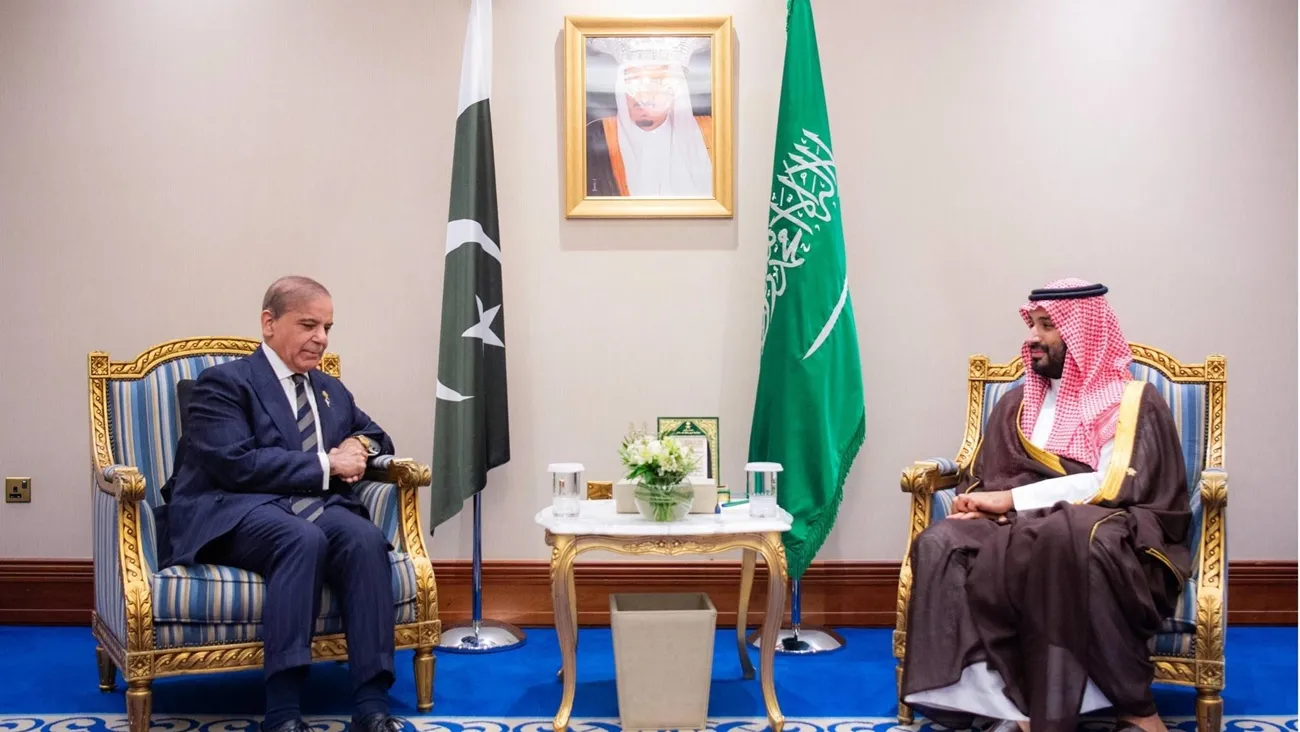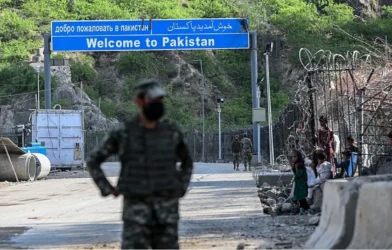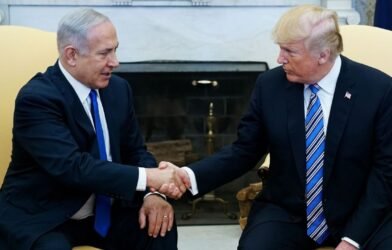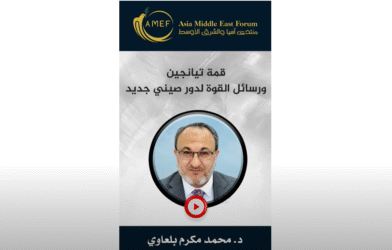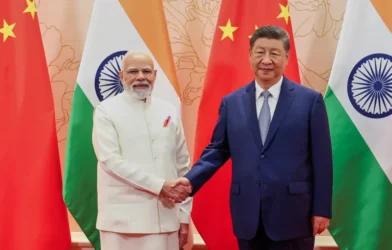Subtotal $0.00
Saudi Crown Prince Mohammed bin Salman and Prime Minister聽Pakistani聽Shahbaz Sharif signed a joint strategic defense agreement in Riyadh on September 17, 2025, in a move that was described as a qualitative leap in the course of relations between the two countries.
The agreement comes at a very complex regional and international moment, especially after the Israeli aggression against the Qatari capital Doha, which raised questions about the usefulness of military agreements with the United States, and as part of Riyadh's efforts to diversify its alliances.
This agreement cannot be read as a transient bilateral agreement, but rather as part of a long path of intertwined relations between the two countries, which witnessed stages of rapprochement and tensions, especially during the Arab and Islamic coalition's declaration of war on Ansar Allah in Yemen, and the escalation of disputes under former Prime Minister Imran Khan, up to the reestablishment of the relationship with Shahbaz Sharif.
It also reflects the two sides' recognition of the changing balance of power globally and the emergence of new parties such as China, which reinforces the need for broader strategic partnerships that go beyond the familiar.
This agreement comes at a very complex regional and international moment, especially after the Israeli aggression against the Qatari capital Doha, which raised questions about the usefulness of military agreements with the United States, and as part of Riyadh's efforts to diversify its alliances
Background of relationships聽Saudi Arabia- Pakistani
Saudi Arabia and Pakistan have had close ties since the latter's independence in 1947, as Riyadh was one of the first capitals to recognize it and provided it with extensive economic and political support.
Over time, the relationship turned into a full-fledged partnership in many ways. Saudi Arabia provided aid, loans and grants to Pakistan, Pakistan hosted thousands of Saudi military personnel for training, Pakistani officers participated in developing Saudi military capabilities, including missile and air defense programs, and Riyadh considered Islamabad an ally in confronting Iran.
The relationship between the two countries has an emotional and religious dimension, as Saudi Arabia is the land of the Two Holy Mosques, something that is taken into account by Pakistanis, and Islamabad has sent military forces at various times to protect the kingdom.
During the Cold War, the relationship between Saudi Arabia and Pakistan was solidified when their interests converged in the face of Soviet expansionism, especially since both were considered in the Western camp led by the United States, as Saudi Arabia was Washington's most prominent ally in the Gulf, while Pakistan was its main ally in South Asia.
During the Soviet invasion of Afghanistan (1979), both countries lined up in the Western camp led by the United States, and Pakistan played the role of a rear base to support the "Afghan Mujahideen" with Saudi funding and American sponsorship, which fostered coordination and bonds of trust between Riyadh and Islamabad.
Protecting the Gulf has also been seen as a common goal for Washington, Riyadh and Islamabad, ensuring the security of energy sources.
This experience has created a realization that the security of the Gulf and South Asia is interconnected, and that the Riyadh-Islamabad alliance is part of a broader system to protect Western interests in the region.
Saudi Arabia's role in Pakistani capacity building
The relationship between Saudi Arabia and Pakistan has not been limited to financial and political support, but has extended to building Islamabad's military capabilities over decades, and Riyadh has directly and indirectly contributed to strengthening Pakistan's position as a regional power.
For decades, Riyadh has provided Pakistan with financial support, loans and oil grants at preferential rates to overcome its recurring economic crises, enabling it to devote greater resources to building its military and developing its infrastructure.
Western reports indicated that Saudi Arabia provided financial support in the early stages of Pakistan's program聽Nuclearas part of a shared vision to have an Islamic "deterrent umbrella" against India and Iran.
Foreign Policy and The Guardian have published reports saying that Saudi Arabia has "invested for decades" in Pakistan's nuclear program, to get a bomb through Islamabad if it feels a direct Iranian threat.
Saudi investments in the energy and infrastructure sectors have contributed to Pakistan's ability to stabilize its economy.
The beginning of tense relations
With the launch of Operation Decisive Storm in 2015, Riyadh expected Islamabad to participate directly militarily, which the latter rejected. The Pakistani parliament voted unanimously in favor of a resolution urging the government to remain neutral, and called on the parties concerned to cease fire in Yemen, but affirmed its support for the government's commitment to protect Saudi territory, which Riyadh considered an embarrassment to it and a failure on the part of Pakistan.
Pakistan tried to mitigate Saudi anger by participating in the 2016 Northern Thunder military exercise with Saudi Arabia and its allies. But Saudi Arabia responded by freezing some Saudi financial aid, reducing the level of political coordination, and moving closer to India.
After India unilaterally annexed the disputed state of Jammu and Kashmir on August 5, 2019, Riyadh distanced itself and ignored Pakistani Foreign Minister Shah Mahmood Qureshi's demands to condemn the Indian annexation during a special meeting of the Organization of Islamic Cooperation (OIC).
Qureshi threatened to go to Malaysia, Turkey and Iran. Riyadh responded by demanding that Islamabad immediately repay $1 billion, part of the $3 billion loaned to Pakistan in November 2018.
The Reign of Imran Khan
The most tense period in relations was the rule of former Prime Minister Imran Khan (2018-2022), who publicly criticized Saudi Arabia after New Delhi revoked Jammu and Kashmir's special status in 2019.
Addressing the opening session of the 48th session of the Organization of Islamic Cooperation (OIC) Foreign Ministers in 2022, Khan criticized the organization's positions on Palestine and Kashmir: "We have failed both the Palestinians and the people of Kashmir. I am sad to say that we have not been able to make any impact at all," he said.
Khan's efforts to get closer to Turkey and Malaysia, and his attempt to join a new Islamic axis alongside them, has angered Saudi Arabia, which has seen this as a challenge to its leadership role in the Islamic world.
As a result, the relationship seemed to have lost one of its historical pillars, as political and economic trust between the two sides declined, before the process of rebuilding it began with the advent of Shahbaz Sharif's government.
Agreement聽Defensive聽Strategy
The Saudi-Pakistani defense agreement also sends a message to Washington that Riyadh has alternatives and other partners, and that it will move according to its interests and will not remain hostage to American fluctuations
The agreement signed in Riyadh marks a shift in the course of bilateral relations. It is not limited to enhancing military cooperation, but sets a comprehensive framework for a long-term defense partnership, including enhanced cooperation in the areas of military training, exchange of expertise, arms deals, expansion of joint exercises, and may include cooperation in modern defense industries.
The timing of the agreement reflects Riyadh's desire to seek new partners to fill the vacuum left by the US retreat, and comes amid escalating tensions in the region, from the continuing war in Yemen to the Saudi-Iranian rivalry.
American attitude
With the increasing focus of the United States on the conflict with China, categorizing it as the number one enemy, the repeated talk by US President Donald Trump about it, and statements from the US administration about categorizing it as the greatest threat to US influence, the new US Secretary of State Marco Rubio stated at the beginning of his tenure that "China represents the greatest threat of the 21st century, and we will not stand idly by as its influence expands." This reflects a tougher approach towards Beijing. This is in addition to the Trump administration's adoption of the US withdrawal policy from the Middle East, which has long been the traditional security guarantor of the Gulf region, and the decline of the US role in the region.
Pakistan is the most suitable candidate for this at the moment, given its strained relations with Washington for years due to the Afghanistan issue and Pakistan's rapprochement with China, which gives the partnership with Saudi Arabia a political and economic cover that partially compensates for the frosty relationship with the United States, which is why Riyadh feels the need to look for alternatives that reduce its absolute dependence on Washington.
The Saudi-Pakistani defense deal also sends a message to Washington that Riyadh has alternatives and other partners, and that it will move according to its interests and will not remain hostage to American vagaries.
The role of China
The Saudi-Pakistani defense agreement can be understood in terms of China's increasing role as a major player in the region. Beijing has close strategic ties with both Riyadh and Islamabad and is investing in promoting stability between them to serve its direct interests, especially the Belt and Road Initiative, and its economic interests.
It is also Pakistan's closest ally through the China-Pakistan Economic Corridor (CPEC), one of the initiative's most important projects, which connects western China to the Pakistani port of Gwadar on the Arabian Sea.
At the same time, Riyadh is expanding its economic partnership with China, especially in the fields of energy and technology, and the Gulf region is China's number one source of energy.
China sees the stability of the region as a basic necessity for its strategic projects, so it sponsored the agreement to resume diplomatic relations between Saudi Arabia and Iran in 2023, and the existence of a Saudi-Pakistani defense agreement strengthens the network of alliances from which China benefits, as it links its two most important partners in Asia and provides a more stable environment for its economic projects.
Thus, the agreement becomes not just a bilateral step, but part of a broader regional equation in which China finds space to expand its presence in the face of the relative decline of the American role.
Regional dimensions of the agreement
The defense agreement between Saudi Arabia and Pakistan has dimensions that go beyond the framework of bilateral relations and sends multiple messages. On the one hand, Iran may feel targeted by the agreement, especially since Pakistan shares a long and complex border with it. On the other hand, the agreement gives Riyadh options to enhance its security through major nuclear powers such as Islamabad
The defense agreement between Saudi Arabia and Pakistan carries dimensions that go beyond the framework of bilateral relations, and sends multiple messages. On the one hand, Iran may see that it is targeted by the agreement, especially since Pakistan shares a long and complex border with it. On the other hand, the agreement gives Riyadh options to enhance its security through major nuclear powers such as Islamabad, which was expressed by the Saudi newspaper Asharq Al-Awsat in the words of Hisham al-Ghannam, supervisor of the Center for Security Research and National Security Programs at the Naif Academy for Security Sciences, who said that聽Convention聽It reshapes the deterrence equation in the Middle East by formalizing a nuclear alliance between Saudi Arabia and Pakistan, the only Muslim-majority country with some 170 nuclear warheads.
Okaz newspaper, in an article titled "Saudi air defense ... complemented by a Pakistani nuclear deterrent," argued that the agreement is not just a traditional military alliance but a "reformulation of the regional deterrence equation. The agreement is not just a traditional military alliance, but rather a "reformulation of the regional deterrence equation," taking advantage of the Saudi weight with its money, economy and defense capacity, and in parallel with the Pakistani nuclear and military weight.
Saudi Arabia is the first bulwark against threats to the Gulf, and its military capabilities and defense systems confirm that it is capable of protecting the vital sphere of the GCC countries and establishing the deterrence equation.
India, Pakistan's traditional rival, considers any strengthening of ties between Islamabad and Riyadh to be against its interests, especially as tensions escalate in Kashmir, and New Delhi is betting on its strong economic ties with the Gulf.
Within the GCC, the agreement can be seen as a Saudi move to strengthen its leadership position in the Gulf system and send a message that it is capable of weaving broader military alliances beyond the traditional US framework.
Conclusion
The agreement opens the door to broader cooperation in the fields of training, armaments, and defense industries, enhances the ability of the two countries to face security challenges, and sends a message to regional powers, whether Iran or India, and to the United States that Saudi Arabia has its own options.
The agreement can be characterized as a milestone in the process of reshaping the region's security system, as Washington is no longer the only decisive player, but regional and Asian powers have entered the line of shaping the future.
The implementation of the agreement on the ground will be the real test of the success of this strategy, not just the signing of the agreement



